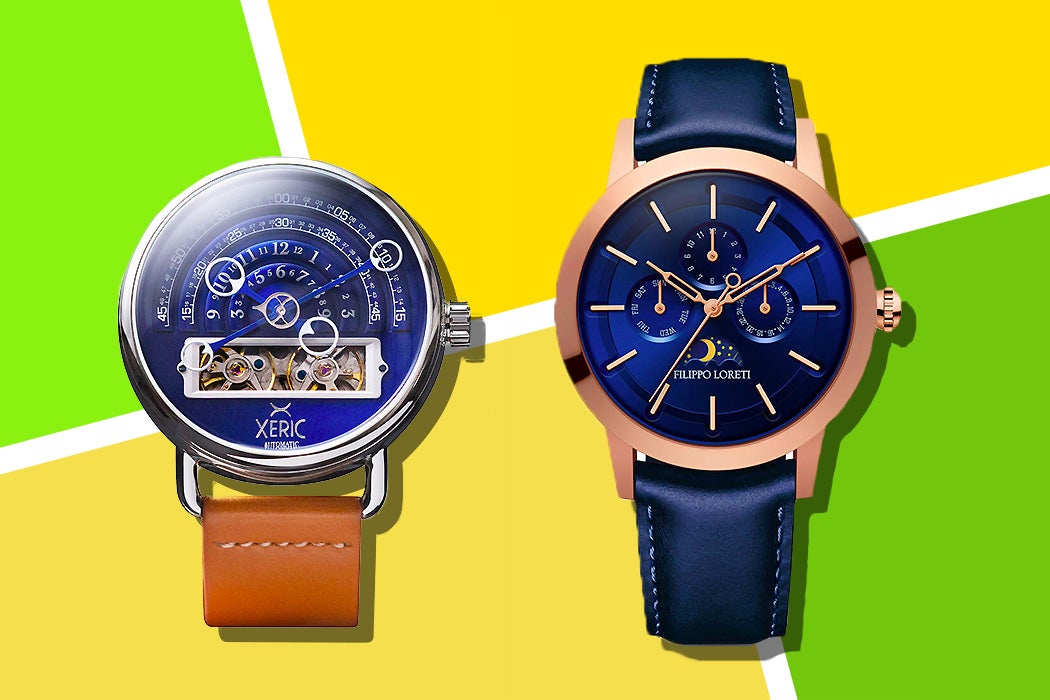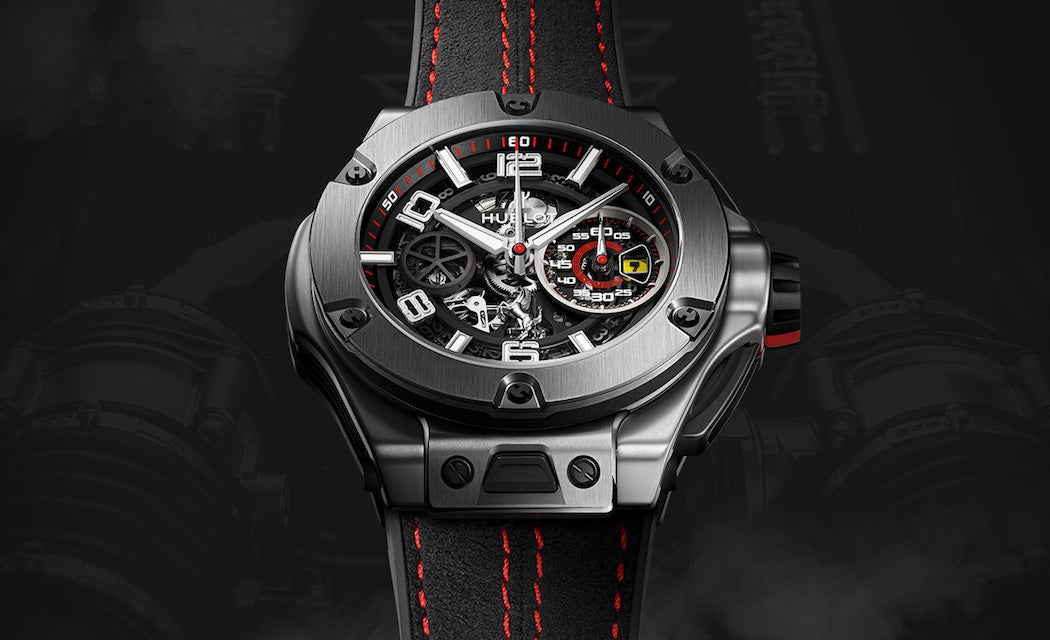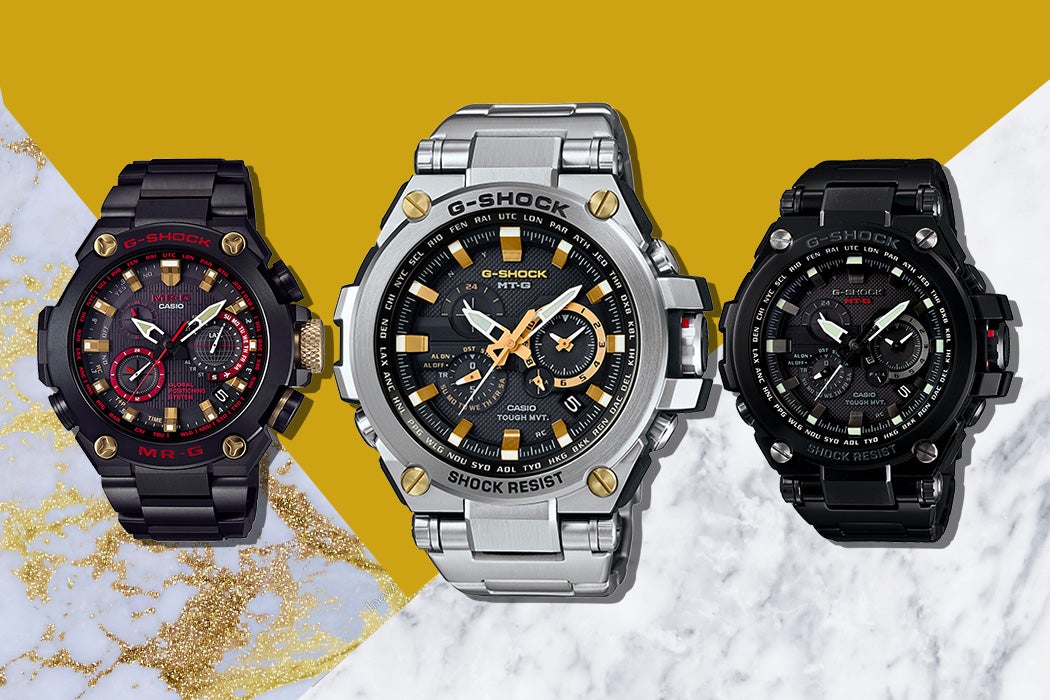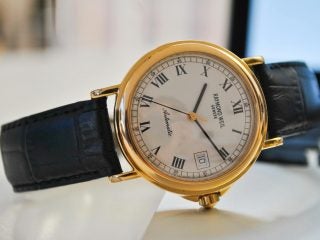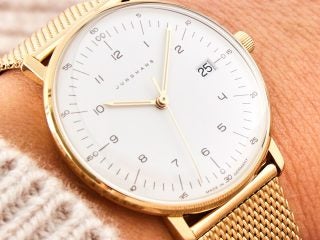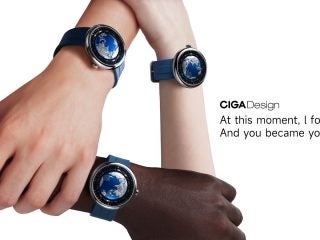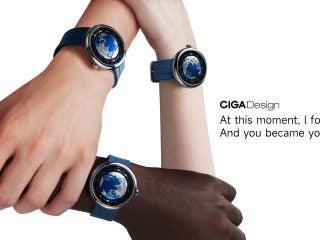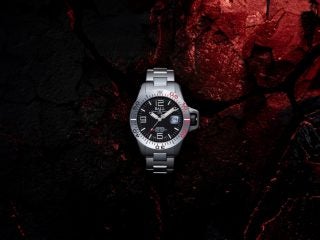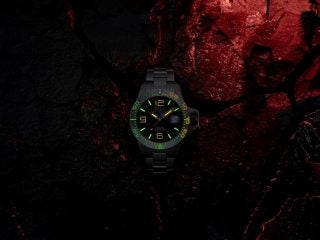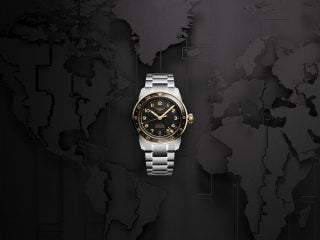We’re all now familiar with the concept of crowdfunding — the practice of financing a project or venture by raising monetary contributions from a large number of people. Sites like Kickstarter and Indiegogo can make it possible for anyone with a project to pitch make their dream a reality.
The model is especially popular for bringing high-end wrist watches to market. Curiously two of the most successful timepiece-related Kickstarter projects — Filippo Loreti and Xeric — were created by brothers.
Danielius and Matas Jakutis of Filippo Loreti raised almost $1 million with their first Kickstarter campaign. Their second set raised over $3.5 million (and had 12,000 backers). Xeric’s Mitch and Andrew Greenblatt raised more than $2 million for its first three launches.
But crowdfunding can also be a boon to buyers — especially for fans of unique timepieces. It’s the distribution model that’s truly disruptive: In most crowd-sourcing campaigns when you pledge funds you are essentially buying the watch. Cutting out the middle man means that you get a fine watch at a fair price.
For those willing to roll the dice on a startup watchmaker, there are plenty of other rewards, such getting in on the ground floor with a brand that might take off and join the ranks of Rolex, Omega or even Patek Phillipe. And of course, you can lower your risk with brands like Filippo Loreti and Xeric that have already proven that they can make a high quality watch.
Here are few more things we like about these family-run watchmakers.

Filippo Loretti
Lithuanian siblings Danielius and Matas Jakutis started Filippo Loretti in 2014 They were in the market for high-end timepieces for themselves and were shocked to discover that even entry level watches started at over $1,000.
After some investigation, the Jakutis discovered that after covering costs for wholesalers, distributors, retailers and marketing campaigns, the markups for a luxury watch was 10 to 40 times higher what it cost to produce.



Their research led them to create a range of timepieces, from sturdy stainless steel and quartz models to more expensive (but still very accessible) complicated pieces with made in Japan Miyota 9 automatic Miyota movements.
How do they keep costs down? On top of controlling their supply chain and selling directly to customers, the Jakutis use practical parts (i.e. Japanese rather than Swiss movements) to achieve the look of a luxury watch for less. Filippo Loreti’s most expensive offering, the Venice Automatic with day. date and day/night indicator, is priced at under $600.

Xeric
Meanwhile, Mitch and Andrew Greenblatt — the brothers behind the retro watch-influenced site Watchismo, decided to share their passion for watches by creating their own unusual yet affordable designs for their customers.
Xeric watched are definitely conversation-starters, style-wise. Their first offering, the Xeriscope, was noted for its unique skeletonized display. But so far customers are singing praises of their quality and price — $400 for an automatic watch that was limited to 100 pieces. Newer models come in quartz and mechanical versions and are priced at about $200 to $600.



“Know anyone who plans to leave their smartwatch to their kids?” asks the Greenblatts on Xeric’s Kickstarter campaign. “Neither do we. Let’s not plan for obsolescence. Let’s be a part of something that was perfect to begin with, and only gets better with time.”




